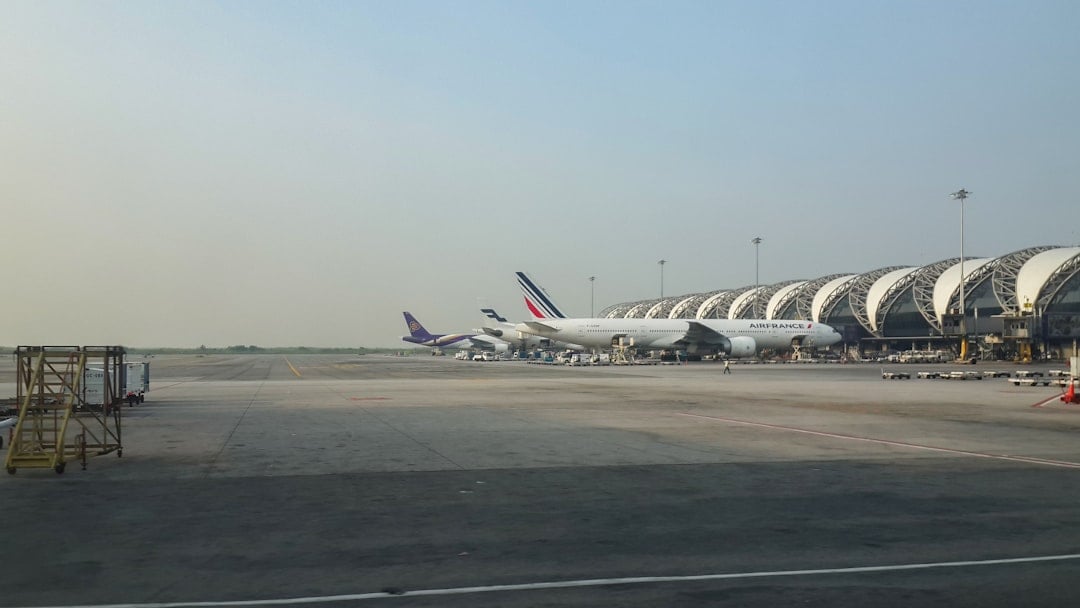Key Takeaways
• UK proposes doubling residency to 10 years for permanent settlement starting 2025.
• Care worker overseas recruitment will end by 2028, affecting Asian migrants heavily.
• Employers face a 32% higher Immigration Skills Charge for hiring overseas workers.
Asian Immigrants in the UK Face Major Changes as Government Unveils Sweeping Immigration Reforms
On May 12, 2025, the UK government released its long-awaited immigration white paper, Restoring Control Over the Immigration System. This document lays out the most far-reaching changes to UK immigration policy since Brexit. The main goal is to sharply reduce net migration, which hit a record 906,000 in the year ending June 2023—four times higher than in 2019. The government now aims to bring net migration down to 240,000 per year by 2029. These proposals, while not yet law, are set to be phased in over the coming months and years, with some requiring further consultation and new laws.

For Asian immigrants—especially those from India, Pakistan, Bangladesh, and the Philippines—these changes could mean longer waits for permanent residency, tougher language tests, and fewer opportunities to work or join family in the UK. Employers, especially in the care sector, are also bracing for higher costs and staff shortages. Here’s what you need to know about the new proposals, how they could affect different groups, and what happens next.
What Are the Key Changes in the Immigration White Paper?
The white paper introduces several major reforms that will affect both new and existing immigrants. The most important changes include:
- Doubling the Residency Requirement for Settlement: Most migrants will now need to live in the UK for 10 years (up from 5) before they can apply for Indefinite Leave to Remain (ILR), which is permanent residency.
- Stricter English Language Requirements: Migrants seeking settlement must show “fluent English” at an A-level standard (C1), a big jump from the current GCSE-level (B1/B2) requirement. Adult dependents of students and workers must also meet basic English standards.
- Phasing Out Overseas Care Worker Recruitment: By 2028, the UK will stop allowing care providers to recruit workers from overseas, closing a major pathway for Asian migrants.
- Shorter Graduate Route for International Students: The post-study work period for international graduates will be cut from two years to 18 months.
- Higher Immigration Skills Charge: Employers hiring overseas workers will pay 32% more in fees.
- Tighter Rules on Family Reunification: New rules will make it harder for families to join or stay together, with stricter English requirements for dependents.
- New Student Levy: A new fee on international student tuition is proposed, but this will need a new law.
These changes are designed to reduce net migration and encourage employers to hire more local workers. However, they also raise big questions about fairness, timing, and the impact on families and businesses.
Why Is the UK Government Making These Changes?
Prime Minister Keir Starmer and the Labour government say the reforms are needed to “significantly reduce net migration” and restore public confidence in the immigration system. Net migration has soared since Brexit, partly because the previous Conservative government opened more visa routes for skilled and care workers. The new government argues that the points-based system failed to control numbers and led to unintended problems, especially in low-wage sectors.
The white paper sets a clear target: cut net migration by at least 100,000 each year, reaching 240,000 by the end of this Parliament (expected in 2029). The government believes that by raising the bar for settlement, tightening language rules, and closing some migration routes, it can encourage more domestic hiring and reduce reliance on overseas workers.
Who Will Be Most Affected by the New Rules?
Asian Immigrants
Longer Wait for Settlement:
Most Asian migrants—including skilled workers, care workers, and many family members—will now have to wait 10 years before they can apply for ILR. This means a longer period before they can access public funds, vote, or apply for citizenship. For many, the path to citizenship will now take at least 11 years.
Higher Language Barriers:
The new requirement for “fluent English” at A-level (C1) will be a major hurdle for some migrants and their families. Those who cannot meet this standard may face delays or even lose their chance for settlement. Adult dependents of students and workers will also need to show basic English skills.
Care Workers:
The phase-out of overseas recruitment by 2028 will close a key route for Asian migrants, especially from India and the Philippines, who make up a large part of the UK’s care workforce. This change is expected to hit both migrants and care providers hard.
International Students:
The reduction of the graduate route from two years to 18 months gives international students less time to find work after graduation. This could make the UK less attractive, especially for students from India and China, who are among the largest groups.
Family Reunification:
Stricter rules and higher language requirements for dependents may make it harder for families to join or stay together in the UK.
Employers
Employers who rely on overseas workers, especially in health and social care, will face higher costs due to the 32% increase in the Immigration Skills Charge. They will also have to meet higher skill and language thresholds when sponsoring workers. Many care sector leaders warn that the ban on overseas recruitment could lead to severe staff shortages and harm the quality of care.
Legal Community
Lawyers and immigration advisers are concerned about the risk of legal challenges, especially if the new 10-year settlement rule is applied to people already on a path to settlement. Courts have often required careful review when governments try to change the rules for people partway through the process.
Migrant Communities
Many Asian families are anxious about longer waits, higher hurdles, and the risk of being separated from loved ones. Community groups are calling for clear transition rules and fair treatment for those already living and working in the UK.
How Will the New Rules Work in Practice?
The white paper sets out a step-by-step process for key immigration routes:
1. Application for Settlement (ILR)
- Residency: Must live in the UK for 10 years (up from 5) on a qualifying visa. Some exceptions may apply for family members of British citizens and special cases.
- English Language: Must show “fluent English” at A-level (C1) for main applicants and dependents. For more on English language requirements, see the official government guidance.
- Contribution-Based Criteria: Applicants must meet new “earned settlement” rules, which will be defined after further consultation.
2. Citizenship
- Eligibility: Only possible after getting ILR, so the path to citizenship will now take at least 11 years for most migrants.
- Contribution: Applicants must show they have contributed to UK society and the economy. Details will be set out later in 2025.
3. Care Worker Route
- Recruitment Ban: Overseas recruitment licenses will be phased out by 2028. After the implementation date, new applications will be refused.
4. Graduate Route
- Post-Study Work: International students will have 18 months (down from 2 years) to find work after graduation.
5. Family Reunification
- Stricter Rules: Dependents must meet higher English language standards, making it harder for families to join or stay together.
6. Employer Sponsorship
- Higher Fees: Employers must pay a 32% higher Immigration Skills Charge when hiring overseas workers.
What Are the Main Concerns and Criticisms?
Legal Uncertainty
There is widespread concern about whether the new 10-year settlement rule will apply to people already in the UK on a path to ILR. If the rule is applied retrospectively, many could face unexpected delays or even lose their chance for settlement. Legal experts warn this could lead to a wave of court cases.
Impact on the Care Sector
Care sector leaders say the ban on overseas recruitment is “incredibly worrying” and could leave many care homes and hospitals short-staffed. They argue that the UK has relied on international staff for years and that closing this route may breach the expectations of both employers and workers.
Higher Costs for Employers
Business analysts predict that higher fees and tougher rules will make it harder for employers to fill vacancies, especially in sectors that already struggle to find local workers.
Fears Among Migrant Communities
Many Asian migrants and their families are worried about longer waits, tougher tests, and the risk of being separated from loved ones. Some fear they may never qualify for settlement or citizenship under the new rules.
Uncertainty for International Students
Universities and student groups warn that the shorter graduate route and new student levy could make the UK less attractive to international students, especially those from India and China.
What Happens Next?
Consultation and Legislation
The UK government will hold a consultation on the new “earned settlement” model and other details later in 2025. Some changes, like the student levy and citizenship reforms, will need new laws and parliamentary approval. Other changes, such as the longer settlement period and higher language requirements, can be made by changing the Immigration Rules. These usually take effect unless Parliament objects within 40 days.
Possible Legal Challenges
If the new rules are applied to people already in the UK, legal experts expect significant court challenges. The government has not yet said how it will handle these cases, and MPs have asked for more details.
Timeline for Changes
Some measures will start within weeks, while others will be phased in over the next few years. The ban on overseas care worker recruitment will be fully in place by 2028.
Background: How Did We Get Here?
After Brexit, the Conservative government expanded visa routes for skilled and care workers, hoping to attract talent and fill gaps in the workforce. However, this led to a sharp rise in net migration, which reached record levels by 2023. The points-based system, introduced after Brexit, was meant to control numbers but has been criticized for failing to do so and for causing problems in low-wage sectors.
The Labour government, elected in 2024, is now responding to public and political pressure to reduce migration and fix what it sees as the failures of the previous system.
What Should Migrants and Employers Do Now?
- Stay Informed: Keep up to date with official announcements from the UK Home Office.
- Check Your Status: If you are already in the UK and planning to apply for settlement or citizenship, find out if the new rules might affect you.
- Seek Advice: Consider getting legal or immigration advice, especially if you are worried about your eligibility or the impact of the new rules. The Immigration Advice Service (IAS) offers support at www.iasservices.org.uk.
- Employers: Review your workforce plans and budget for higher costs if you rely on overseas staff.
Summary Table: Key Changes Affecting Asian Immigrants
| Policy Area | Previous Rule | New Proposal (May 2025) | Impact on Asian Immigrants |
|---|---|---|---|
| Settlement (ILR) | 5 years | 10 years (most routes) | Longer wait for permanent status |
| English Requirement | GCSE (B1/B2) | A-level (C1) | Higher language hurdle |
| Care Worker Recruitment | Open | Phased out by 2028 | Major route closed |
| Graduate Route | 2 years | 18 months | Less time to find work post-study |
| Immigration Skills Charge | Standard | +32% | Higher employer costs |
| Family Reunification | Basic English | Stricter for dependents | Harder for families to join/stay |
Looking Ahead: What’s Next for UK Immigration?
The coming months will be critical as the UK government moves to turn its immigration white paper into law. Migrants, employers, and legal experts will be watching closely to see how the rules are applied and whether there are any exemptions or transition arrangements. The consultation process will give stakeholders a chance to share their views, but many are already preparing for a tougher, more uncertain environment.
As reported by VisaVerge.com, these sweeping changes mark a turning point for UK immigration policy, with far-reaching effects for Asian immigrants, employers, and the wider society. The government’s push to reduce net migration will shape the lives of thousands of people in the years ahead.
For the latest official updates and detailed guidance, visit the UK Home Office.
Takeaway: If you are an immigrant, student, or employer affected by these changes, now is the time to review your plans, seek advice, and stay informed as the UK government moves forward with its new immigration white paper and efforts to reduce net migration.
Learn Today
Indefinite Leave to Remain (ILR) → Permanent residency status in the UK allowing settlement and citizenship eligibility after meeting criteria.
Net Migration → The difference between people entering and leaving the UK annually, aimed to be reduced drastically by 2029.
Immigration Skills Charge → A fee paid by UK employers hiring overseas workers, increasing by 32% under new rules.
Graduate Route → Post-study work visa allowing international students to stay and work in the UK after graduation, now shortened.
Family Reunification → Immigration policy rules allowing family members to join or remain together, facing stricter English requirements.
This Article in a Nutshell
The UK’s 2025 immigration reforms aim to reduce net migration from 906,000 to 240,000 by 2029, doubling residency and tightening language rules, affecting Asian migrants and employers significantly.
— By VisaVerge.com













